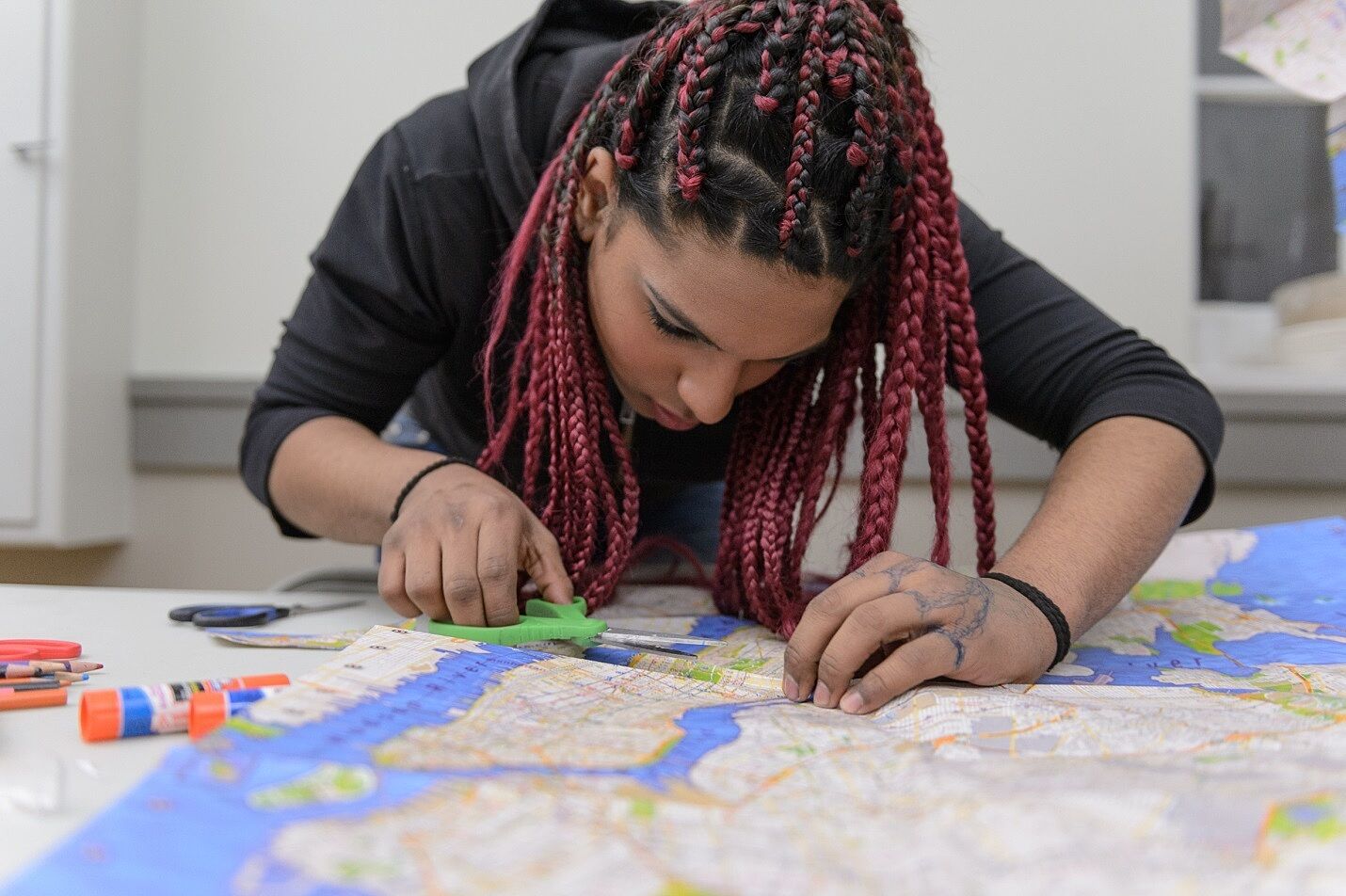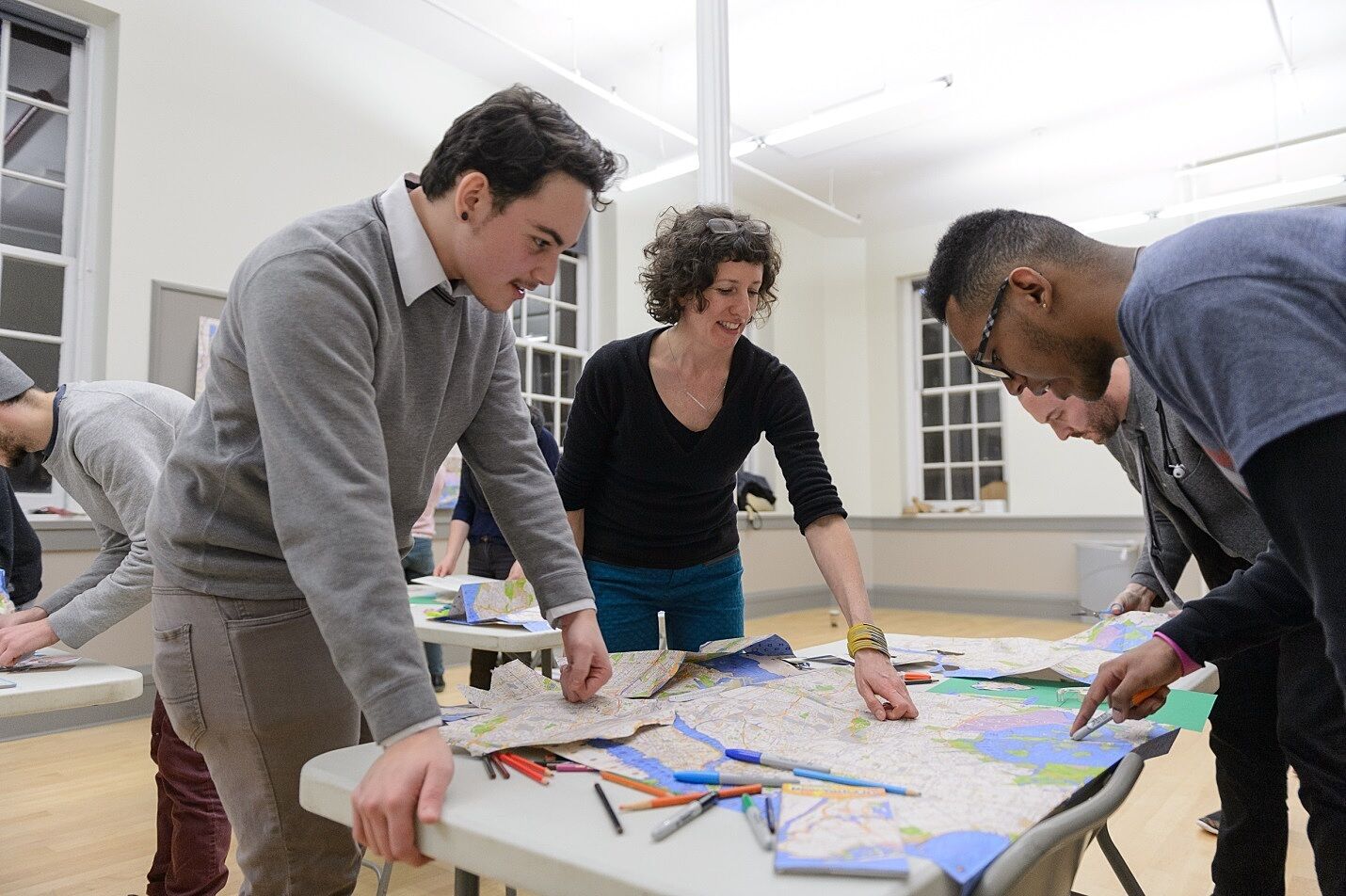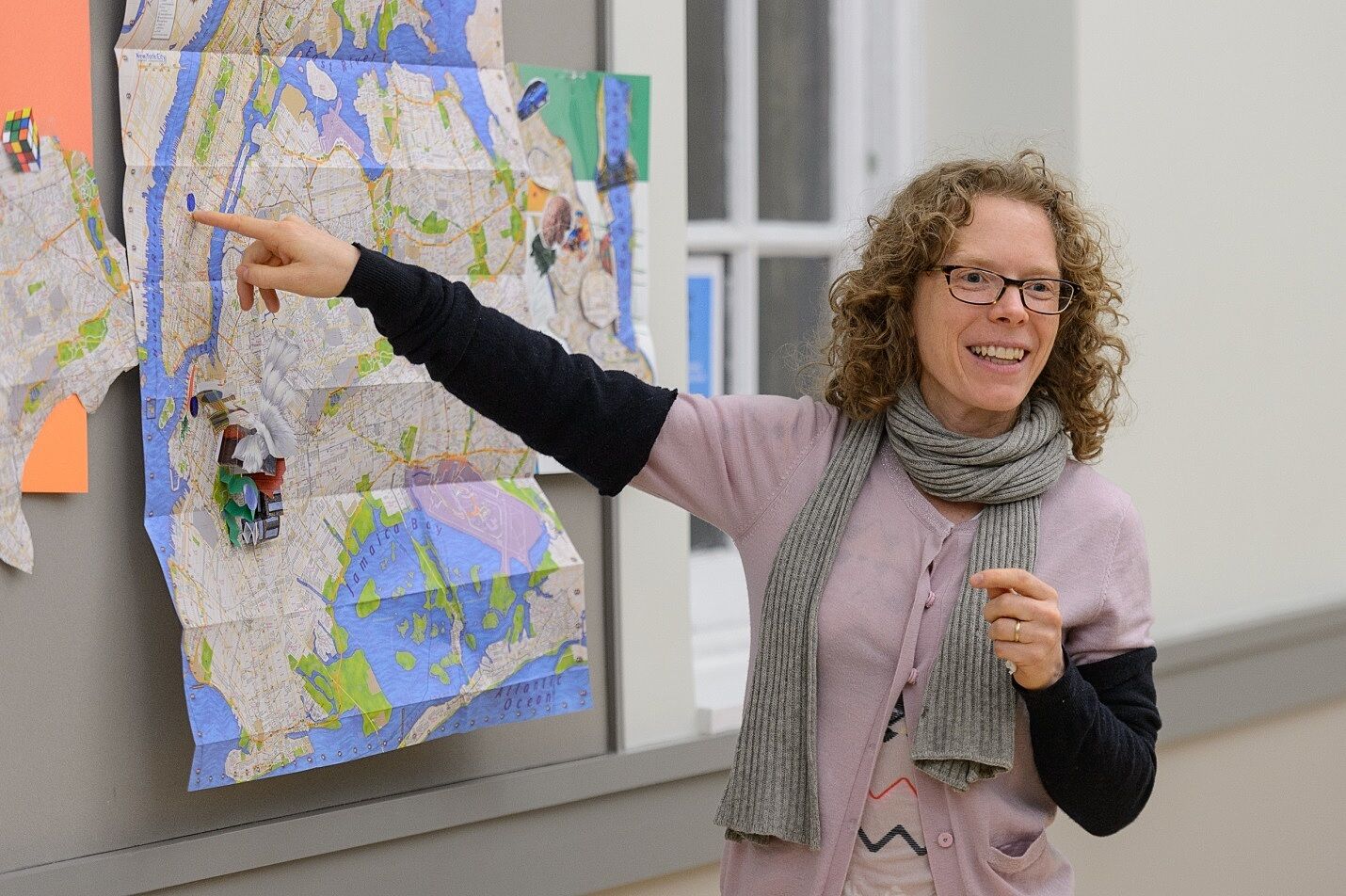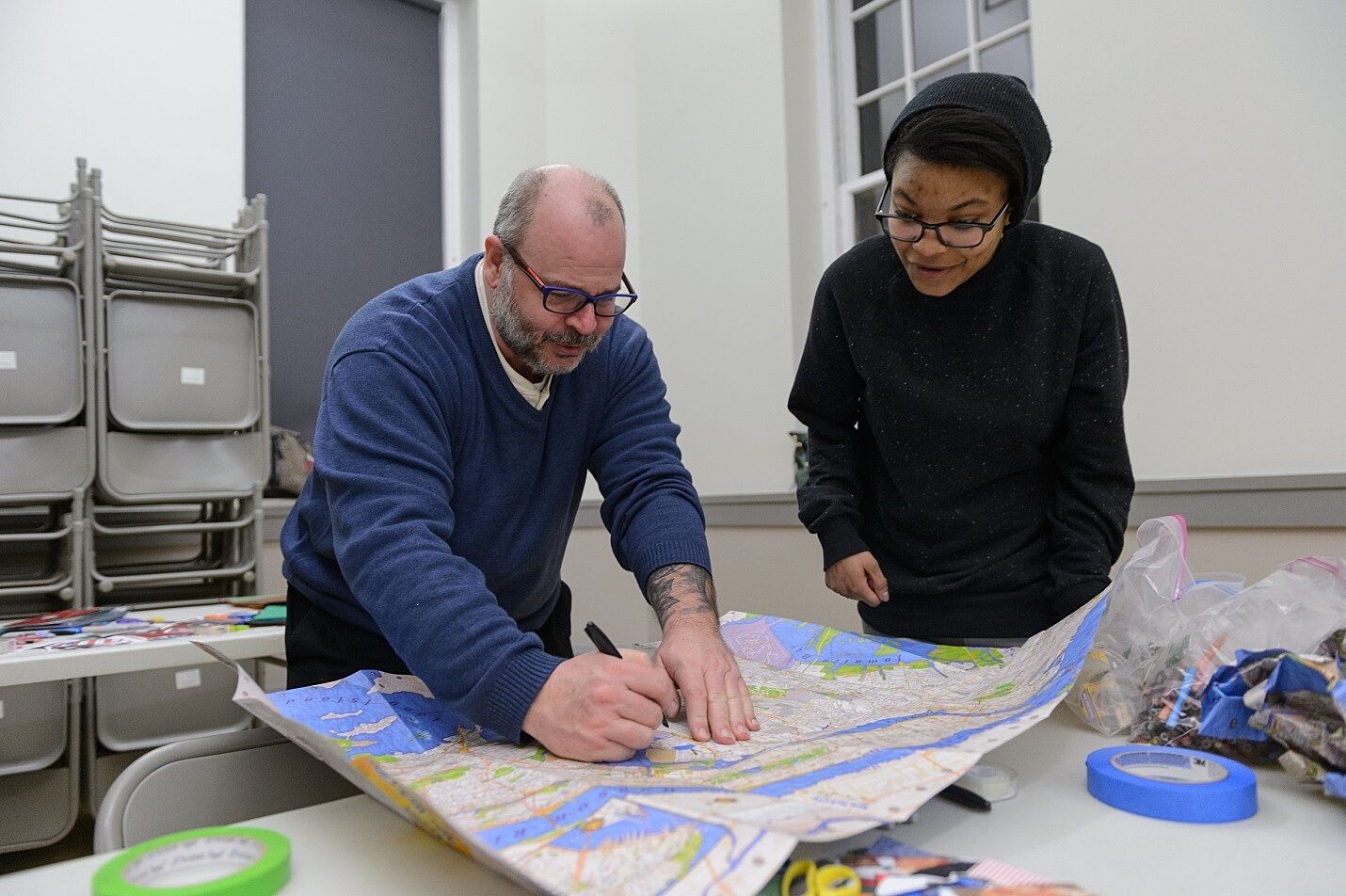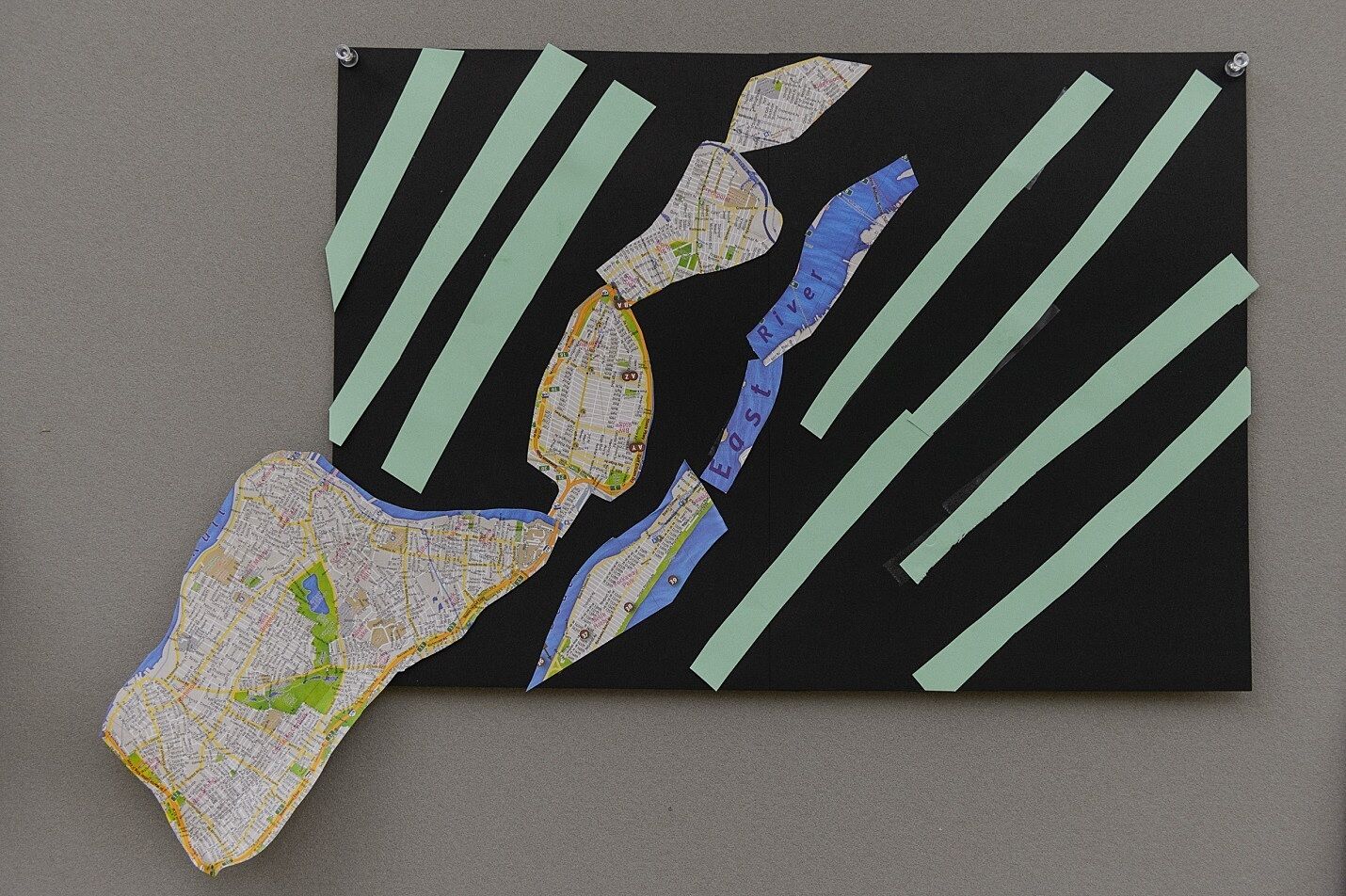Mapping Project with the LGBT Community Center
Apr 15, 2015
In February 2015, Whitney Education’s Community Artist-in-Residence Lize Mogel worked on a mapping project with participants in the LGBT Community Center’s mentor-mentee program, located in the West Village. The program pairs a young person seeking a mentorship with an older individual in the community. Participants spent two sessions together exploring Mogel’s concept of “counter mapping,” creatively manipulating maps as a way to subvert traditional political power structures of place, and using them as a vehicle for personal expression. Drawing on these conversations, the group created personal “mash-ups,” Mogel’s term for collaging maps, drawings, photographs, text, and other materials.
The idea of counter mapping was a great source of inspiration for the Center participants, particularly how maps have been used historically to impose power on disenfranchised areas. The participants discussed maps of the world, which often emphasize the size or placement of wealthier, more powerful countries by placing them more centrally. One mentor wanted to use her map to subvert this idea. She chose not to cover up anything on the base map, because she decided that covering the map would be her own imposition of power. Instead, she created three-dimensional structures that rested on top of the map. This way she felt she could honor the integrity of the base map, while also creating her own map mash-up.
Mogel was able to work closely with each of the participants and give them feedback. The participants appreciated the opportunity to work directly with Mogel. One mentee remarked, “This project really inspired me to look at maps a different way because of Lize’s perspective and her history of understanding maps.”
This project took on a unique dimension at the LGBT Center because of the close relationships between mentees and mentors. Mentees were able to draw inspiration from the experiences of their mentors, particularly those who were actively fighting for LGBT rights in this neighborhood in the 1960s and 70s. “Working with our mentors it was interesting for them to point out the things that have changed, street names, the things they went to when they were younger, that are now closed down, or still there but drastically different from how they remember it,” commented one mentee. “I enjoyed getting to know more about their lives and [it] helped us all bridge gaps between our generations.”
The participants’ maps ranged from highly conceptual approaches to more literal, highlighting personal landmarks, different places lived, or frequently used subway lines. Moreover, the project enabled participants to creatively reimagine what maps can represent, and also see themselves as artists. “I really only used to look at the MTA [subway] map, but after this art project, it was just, wow, I saw my life trailing off and going different places that I’ve been to,” one participant remarked. Another person added, “I was pretty proud of myself because I tend not to be too comfortable doing artistic stuff and really being satisfied with stuff I put out. I was surprised at how quickly the idea came to me and how well I executed it.” Mogel was excited that the participants have come to think about maps—and hopefully themselves—in a completely new and different way.
Hannah Heller, Teachers College/Whitney Museum Research Fellow

